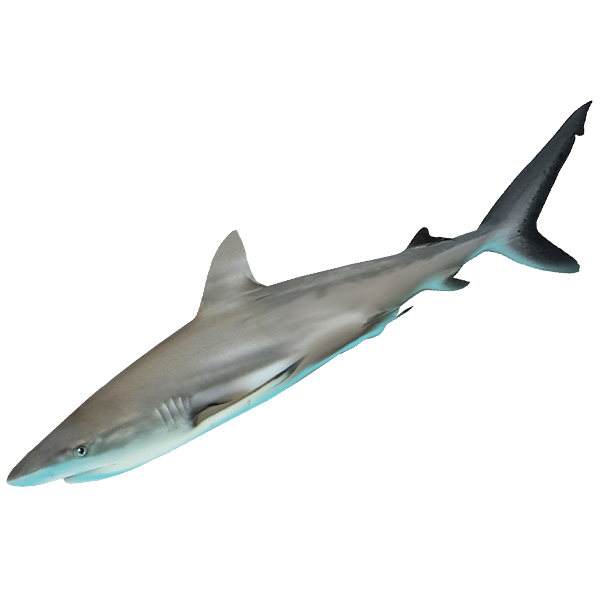Carcharhinus perezii
Caribbean Reef Shark
Maximum Size:
10 ft (3 m), 154 lb (70 kg)
Longevity:
Unknown, but believed to be between 14 and 22 years.
Typical depth:
3–213 ft (1–65 m)
Behavior:
The Caribbean reef shark is the most common shark species encountered on Caribbean coral reefs. They tend to inhabit drop offs and the seaward edges of reefs, feeding on most reef fish species, as well as stingrays and eagle rays.
Predators:
Larger shark species, such as bull and tiger sharks.
Did you know?
Caribbean reef sharks are one of the few shark species that have been documented sleeping on the seabed. Most sharks must swim constantly, even while sleeping, to keep water flowing across their gills, otherwise they will drown.
WARNING!
Although attacks on humans by Caribbean reef sharks are very rare, they have been known to cause injury if they feel threatened or cornered. Warning signs of an attack include head swings, exaggerated swimming, back arching and lowered pectoral fins. Attacks usually result in biting or raking with the teeth, which can cause deep lacerations. The severity of shark bites often depends on the species that bites. There have been numerous documented attacks on humans by Caribbean reef sharks but no known fatalities.
TREATMENT
Exit the water as soon as possible. Rinse the affected area with soap and water. Apply pressure to control the bleeding. It is not unusual for someone bitten by a shark to require treatment for shock. In this case, keep them warm, calm and in the shade, and do not provide anything to eat or drink. Lay the person on their back and elevate their legs above their head. Seek medical attention as soon as possible, even for minor bites, which will probably require cleaning and suturing.
MEDICAL DISCLAIMER
The treatment advice contained in this book is meant for informational purposes only and is not intended to be a substitute for professional medical advice, either in terms of diagnosis or treatment. Always seek the advice of your physician or other qualified health provider if you are injured by a marine organism. Never disregard professional medical advice or delay seeking it because of something you have read in this book.

